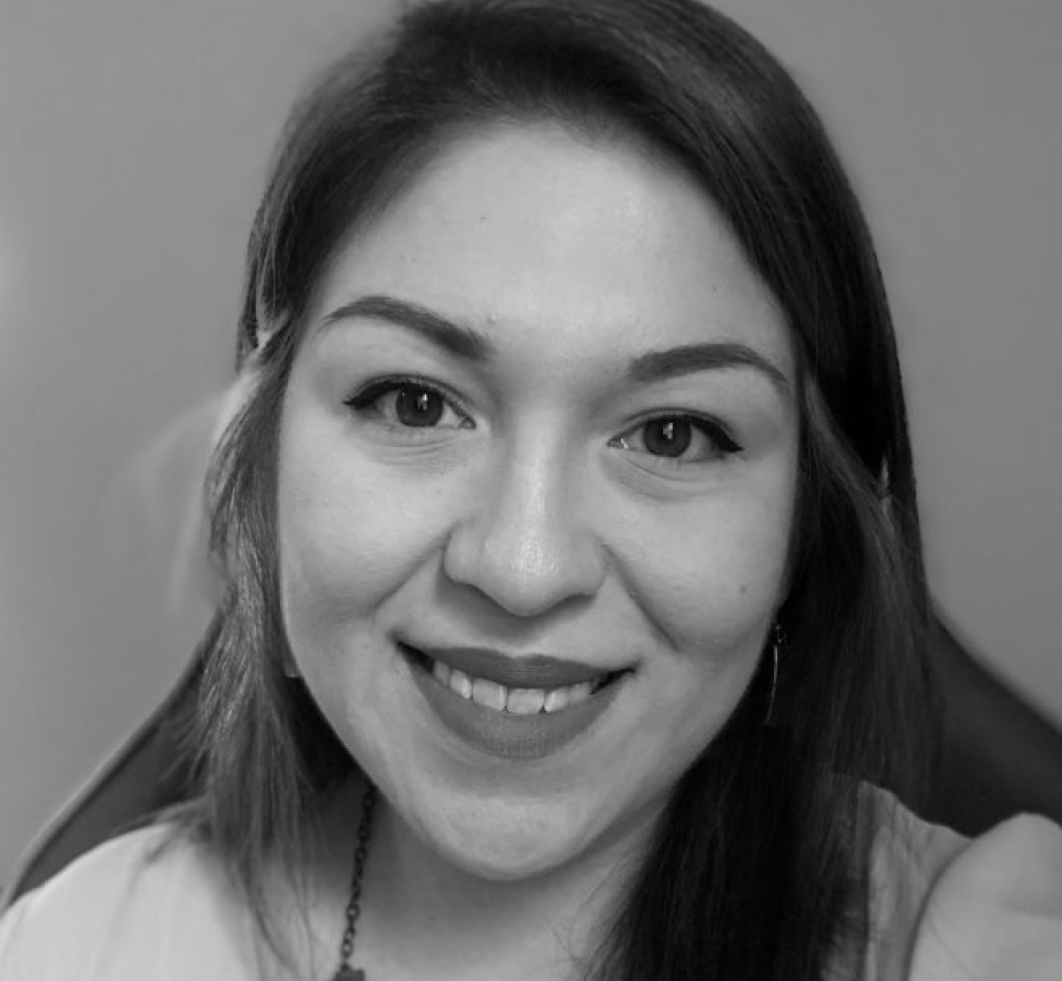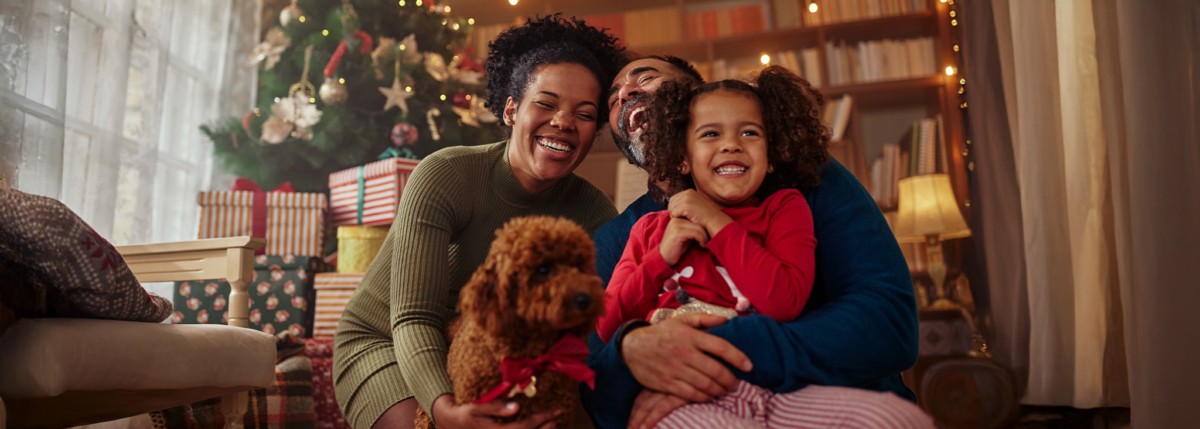Grace’s Story: Life with Down Syndrome + Type 1 Diabetes
Written by: Liz Cambron-Kopco
4 minute read
November 27, 2023
Did you know that type 1 diabetes (T1D) is more common in people who have Down syndrome (DS)? People with DS are not only at increased risk for developing T1D, but they tend to develop T1D at an earlier age on average than those without DS. Although research is still investigating the cause of the increased risk, one thing is very clear—a dual diagnosis of T1D and DS is tough.
Beyond Type 1 chatted with the Grace McGirr, an 18 year-old living with T1D and Down syndrome, and her parents Joe and Torie. Hear about what life is like with a dual diagnosis of T1D and Down Syndrome, and what her parents wish the community knew about Grace.
This interview has been edited for length and clarity.
Can you share Grace’s diagnosis story?
Torie: Grace was nine when she got diagnosed. We had been living in Colorado for about 11 years and Grace ended up in the hospital many times with her lungs—just didn’t work with a high altitude. We ended up moving to Maryland, and about a week into that move we noticed she had a yeast infection, so I found a pediatrician right away.
Then we noticed that Grace was really thirsty and going to the bathroom a lot. But I didn’t think anything of it because it was so humid in Maryland—it was a very different environment for her.
We had dinner with a friend of ours, a nurse, who was hired to care for a boy with diabetes at a school. As soon as we got home, Joe Googled type 1 diabetes and Grace had every symptom.
The next day I called the pediatrician and I go, ‘I think she has diabetes.’
She had ketones—darkest you could have. A week into living in Maryland and we get sent to the hospital and learn within a day and a half how to deal with T1D. Had it not been for Joe, I don’t know that I would’ve put it together quite so quickly. You can explain every symptom away.
What do you wish people knew about life with diabetes and Down Syndrome?
Joe: Having a dual diagnosis is quite a challenge. We have been through quite a bit with Grace’s Down syndrome and significant respiratory issues. As all families do, just realizing, wow, diabetes is such a daily challenge!
Every day is an upkeep, challenging this, that and the others. We’ve got the Down syndrome aspect down now, it’s the diabetes that’s really the challenge to continue to monitor and stay on top of.
Torie: Our kiddos who are special needs, they already enter their life with complications. Then you add diabetes, which is a lifelong constant illness that you have to take care of every day.
For Grace, she’s 18 and in a post-grad situation. I definitely believe Grace could have a job, but because she needs help taking care of her diabetes and supervision, I’m not sure what that’s going to look like after graduation. It just adds that other layer of ‘this is hard’. How do we manage this and maneuver around it? Don’t have that answer yet but we’re just taking it year by year.
As a caregiver, what do you think the community still needs to have that extra support?
Torie: We have a beautiful school situation where her teachers are amazing. I don’t really have to advocate that someone is there to take care of Grace. They go out with her in the community and handle that.
Joe: But we know there are other schools that aren’t that way and we’ve been quite fortunate with that. It’s an issue of continuing to engage with the school and advocate with the school.
A little bit of our challenge is advocating with the community so we can try to find an employment environment that will accept some risk of someone with diabetes who really can’t self-medicate or self-advocate.
Can you share who Nick is?
Grace: Nick Jonas!
Torie: When Grace first got diagnosed, we tried a continuous glucose monitor (CGM)—but Grace does not like things on her body. Our daughter Tally found a picture of Nick Jonas with a CGM and put it on the refrigerator. She said ‘Grace, you got this’ and Grace agreed to try it.
Now we call Grace’s CGM Nick. Instead of asking ‘What’s the Dexcom say or what’s your blood sugar level’ we ask ‘What does Nick say’?
That’s just made it easier and makes it a little more personable. Thankfully people do share their stories because that’s what helps.
Joe: It’s a minor thing, but I think it’s even helped us communicate and share our story with our teachers. Our teachers now have fun asking, ‘Hey, what does Nick say?’
It’s just a little way around asking diabetes questions—it’s been nice.
Grace, what was it like spending your 18th birthday at the Jonas Brothers concert?
Grace: Incredible!
Torie: Her great uncle Rick got her tickets to see them. Grace, do you remember what you told me at the very end of the concert when we were walking out? What did you say it was so what?
Grace: Loud.
Torie: Well, it was was. What did you love?
Grace: I loved meeting him in person.
Joe: Grace sat there the entire time just completely mesmerized—it was a great show! Of course as a teenage gal, Grace is quite familiar with the Jonas Brothers songs and it was a great set of music they had. She really enjoyed it all, it was something special.
Any advice for other teens with T1D and DS, or their parents?
Joe: Do Jonas Brothers on Just Dance on YouTube to get your blood sugar levels down. If it’s late at night or it’s too cold outside to go for a walk, just pick a Jonas Brothers Just Dance song and it’s a family activity.
Torie: I would say that sometimes I tend to forget how amazing our kids are. Grace handles this beautifully. She never complains about any of it.
We have to change her Omnipod every three days. We have to change her CGM every 10 days.
Don’t forget how special our kids really are because she’s been through a lot, as all kids with special needs have. Their stories are amazing.

Author
Liz Cambron-Kopco
Liz has been living with type 2 diabetes since 2014, but grew up surrounded by it as a first-generation Mexican-American. With a bug for research, Liz pursued a PhD in molecular biology and spent her early career studying insulin signaling in invertebrates to understand how insects’ tiny little bodies work. Along with advocating for women and girls in STEM, Liz shares her personal journey with diabetes on her social media platforms to help teach people to become their own advocates. Her passion for advocacy led her to join the Beyond Type 1 team. When she’s not advocating, Liz enjoys hiking... Read more
Related Resources

The holiday season is filled with celebrations, family gatherings, and plenty of holiday foods. No...
Read more

Managing diabetes is a complex and often overwhelming journey—even nine years after my daughter's diagnosis....
Read more

The holiday season is all about celebration, family, and joy—with a little chaos sprinkled in...
Read more

